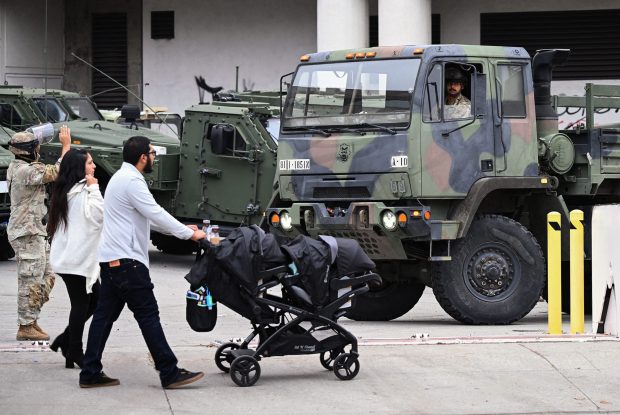Thirty-two years ago, a tropical storm wandered over an area of superheated water and exploded into a monster Category 5 hurricane with 174 mph winds. Compact and powerful, Hurricane Andrew slammed into south Florida, obliterating houses and leaving 65 people dead. In the days that followed, our response to the disaster was a textbook case of failure, with a breakdown in communication and coordination at all levels of government. Nobody, from the White House down, had any inkling what was going on. Peg Maloy, the Federal Emergency Management Agency’s spokesperson at the time, put it best: “Something is wrong. Nobody knows where it’s breaking down. I’d like to know myself.”
The result of our failed government response was, as always, human suffering, with the affected communities left to fend for themselves. The town of Homestead was a devastated landscape, littered with dead animals, the smell of human waste hanging in the air. Dade County’s Emergency Management director, Kate Hale, said during a televised news conference: “Where in the hell is the cavalry on this one?”
The bad news is that, when it comes to response to catastrophes, little has changed in the decades since that hot August morning some three decades ago. While some agencies (FEMA is a notable example) have improved their capabilities and their processes, as a nation we have made no progress in our readiness for major disasters. This was clearly shown 13 years later in New Orleans after Hurricane Katrina and, most recently, by our national response to the COVID-19 pandemic, when a clumsy federal bureaucracy and its various components, from the Department of Health and Human Services to the Centers for Disease Control and Prevention, the Department of Homeland Security and FEMA, failed to take an ownership stake in the crisis. Instead, they pointed at each other and dithered, while the virus spread rapidly across the nation.
Although it’s true that the COVID-19 disaster unfolded in a polarized political climate, its failures cannot be attributed to partisanship. The causes of our national failure arose out of incompetence. The partisan divisions that emerged were the result of that incompetence, not its cause. Meanwhile, the absence of a cohesive national plan leaves us vulnerable.
Catastrophes overwhelm us, affecting everyone in the same way at the same time. They ignore political boundaries, sowing chaos and demanding information and resources way beyond what is immediately available. Many people, even some crisis management professionals, think the challenges are just too great. They believe that planning for catastrophes is wasted effort; an exercise in futility. They are wrong.
Planning (i.e., what must happen and who is on the hook to do it) enables coordination, and, with effective coordination, nothing is impossible. Only national executive leadership can build the plan that establishes accountability across all levels of government, that connects to the private sector and deploys the resources and solutions needed to address widespread and urgent human suffering.
Now is the time for us to stop the dithering and the finger-pointing and to start reconfiguring ourselves to confront the unknown in a complex environment. With the national nominating conventions over and the candidates engaged in a nine-week sprint to Election Day, this is a critical opportunity to elevate this issue. Preparing the nation for the inevitable next catastrophe — whether it be a natural disaster, pandemic or terrorist attack — is a fundamental responsibility of the federal government. The president owns this issue, and we should not let the candidates off the hook.
How many more failures must we be forced to endure before we get the plan we need? The voters deserve to know.
Kelly McKinney is the assistant vice president of emergency management and enterprise resilience at NYU Langone Health in New York City. He is a former deputy commissioner for the New York City Office of Emergency Management and the author of “Moment of Truth: The Nature of Catastrophes and How to Prepare for Them.”
Submit a letter, of no more than 400 words, to the editor here or email letters@chicagotribune.com.



